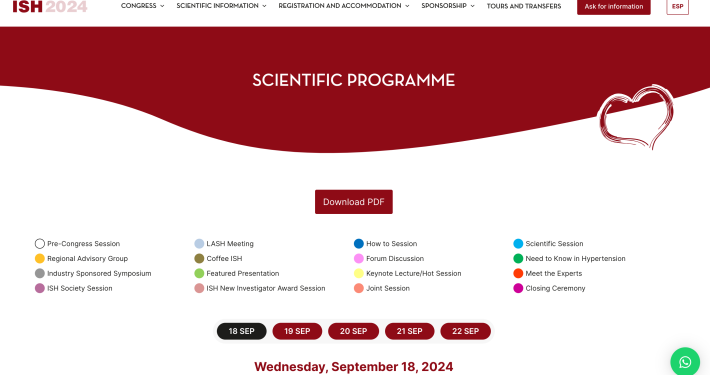Report calls for action to improve circulatory health worldwide
A position paper co-authored by members of the ISH has highlighted what health systems and governments need to do to improve circulatory health worldwide.
Recommendations from the Global Coalition for Circulatory Health (GCCH) report include greater screening for hypertension, and affordable provision of anti-hypertensive medication for everyone who needs it.
The report from the GCCH – which the ISH is part of – focuses on strengthening primary care services as part of an overall ambition to achieve universal health coverage. Stronger primary care is linked with lower mortality rates and more equitable care.
Circulatory diseases are the leading cause of death and disability worldwide. But they have not received the same amount of attention or investment compared to other areas, such as infectious diseases or child health.
And around the world there is evidence of a growing incidence of circulatory disease and increasing prevalence of high BP in young people.
The recommendations in the report are based on existing World Health Organisation recommendations. They are evidence-based and have been evaluated as cost-effective.
Recommendations include opportunistic screening for hypertension and other cardiovascular diseases, screening for lifestyle risk factors for circulatory disease such as unhealthy diet, tobacco use, and physical inactivity, and pharmacological treatment of hypertension for all those who need it.
The report recommends drug treatment with one or a combination of the four classes of anti-hypertensive drugs existing, depending on availability in primary care.
The paper says priority should be given to ensuring appropriate funding and resourcing of primary care services, and it highlights the role non-physician workers play in managing circulatory conditions.
The ISH contributors to the report were President Bryan Williams alongside Dylan Burger and Erika Jones.
Prof Williams said: “Current approaches to preventing circulatory disease are just not working as well as they should be. It is frustrating that the burden of hypertension and cardiovascular disease around the world continues to rise – and this is the case in both low- and middle-income countries as well as high-income countries.
“We need at national policy level, to expand the provision of basic preventive health services that can deliver the evidence-based and very effective treatments we know work. This will need more targeted resourcing for health services, as well as new ways of delivering care more economically with less reliance on medical practitioners and better engagement with the public and wider use of other health care professionals and technology to deliver preventive care.”
Read the report: The Road to Universal Health Coverage: Why integration of circulatory health interventions in primary care is essential.














